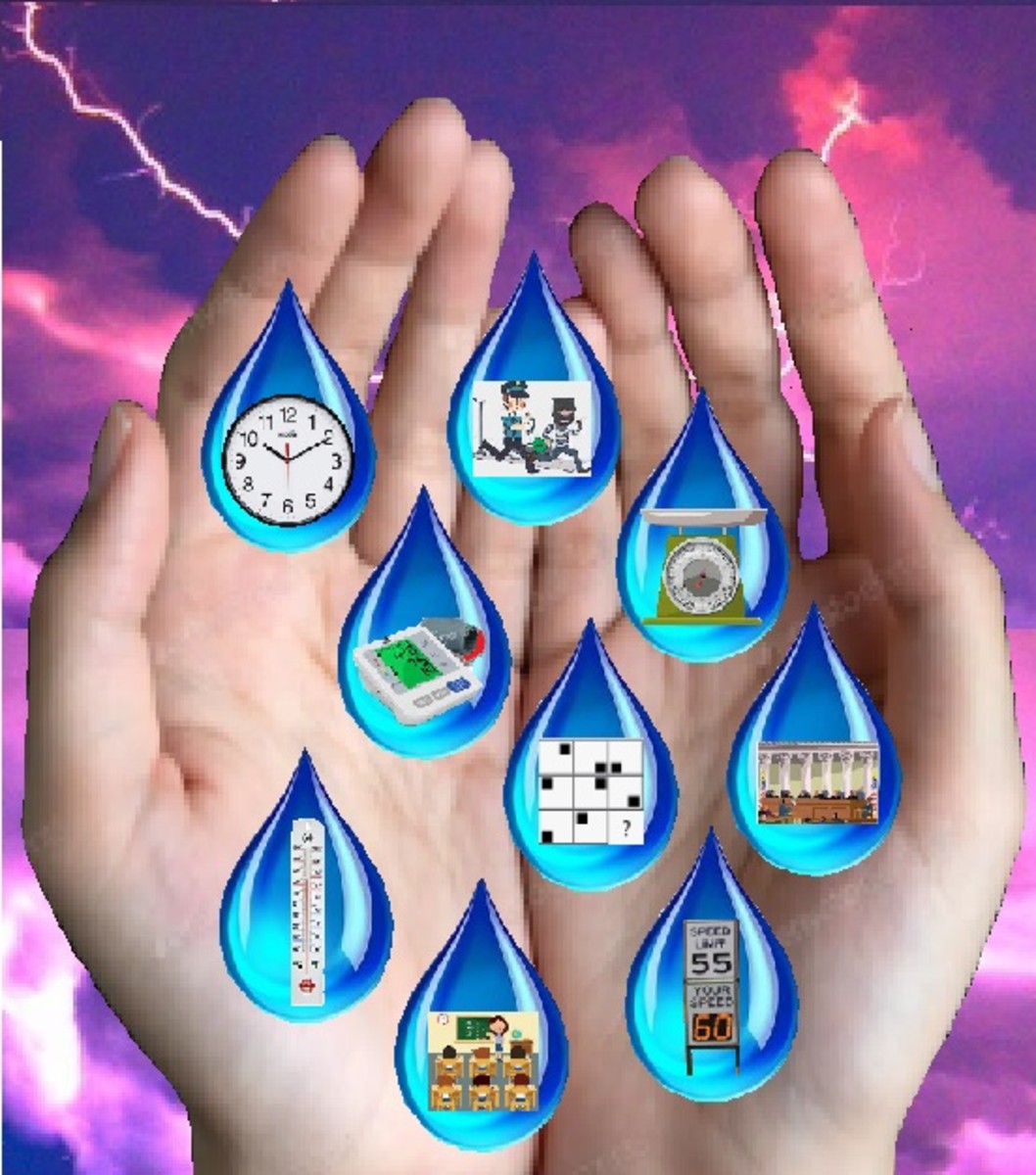Competition Why
In the animal world, all the living things have to compete for food to survive whether they like it or not. They have to compete for mate to reproduce whether they want to or not. Through competition, the strong and the fit have a better chance to make it to maturity to propagate their superior skills to the future generation. As a result, the living things are able to adjust, adapt, and excel in an unpredictable, changing, and sometimes, harsh environment. In the man-made world, we no longer have to compete for food to eat and for mate to reproduce. Since everything is provided for, a person can live out one’s life in comfort without ever to compete for anything if one chooses to. But, we understand that through competition:
-
We can find a better person for the job,
-
We can improve our mental sharpness, physical strength, and skill levels in the sport,
-
Our knowledge on how Nature works will grow in leaps and bounds.

Business
In order for a business to be successful in the long run, it not only has to start out with a good business plan, hard working workers, and a good product, it has also to stay competitive by:
-
Modifying the business plan according the changing market situations,
-
Cutting unnecessary costs, improving operation efficiency, and creating a better working environment,
-
Improving product quality and reliability,
-
Coming up with new products and features.
A successful business attracts attention and imitators who will try their best to outperform the originator. This process creates a healthy and competitive environment that encourages innovation and high quality products as well as more efficient customer services. There are businesses trying to monopolize the market or to outright copy to avoid the costly competition. Fortunately, we have setup rules, regulations, and laws to discourage such practices.

Sport
Most of us play some kind of sport for recreation and exercise. But, we know that the game will be more interesting and exciting when we compete against one another. In order to come out ahead of competition, we try to be mentally sharp, physically fit, and technically polished. Since what is at stake of the competition normally is nothing more than pride, we do not have the incentive to be our best in the sport. However, it is a different scenario in the professional arena where athletes are rewarded to be their best. In the professional sport, the game’s plan is competition and the game’s goal is to win. To stay ahead of competition, the professional athlete has to:
-
Watch what one eats, get the proper nutrition, and have a workout regiment to keep the body not only in top condition but also from injury due to unexpected roughness in the game,
-
Understand the game and the opponent, and formulate a winning strategies,
-
Constantly work and find ways to improve the skill level.
Competition lets the professional athletes know their physical, mental, and skill limitations in a given sport. They may not be a winner all the time; they understand that they have given their best.

Academic
Without the knowledge of how Nature works, we will still be in the Stone Age worrying about our next meal. Our knowledge on growing crops, domesticating animals, building houses and bridges, converting natural resources into energy and medicine, etc., is preserved, compartmentalized, and expanded in our educational system where young people are taught the basics of how Nature works. When they reach adulthood, they can choose to understand why Nature works, be at the frontier of the knowledge, and venture to territories where no person has been before. When our knowledge was still at its infancy, a person, on one’s own, could make discovery in medicine, astronomy, mathematics, physics, biology, etc. Today, the effort requires the backing of the academic institutions in a competitive environment where scholars, researchers, and scientists are free to pursue subject matters that have no immediate economic and social values. From the past Nobel Prize competition, we can see that all science winners were from universities and non-profit research facilities.

3D’s
Competition is no joy ride. It requires the 3D’s - Dedication, Discipline, and Diligence. It is stressful and nerve wracking, and can incur additional material and operational cost. But:
-
A company has to stay competitive in order to have a chance in the business,
-
A professional athlete has to stay competitive in order to have a chance to keep the high paying job,
-
An academic institution has to stay competitive in order to have a chance to attract gifted scholars.
With competition:
-
We get better products and services, innovative and efficient organization,
-
We get relief from our routine and monotonous life by getting entertained by exciting games played by professional athletes with superhuman skills,
-
Our living standard is constantly getting better through more efficient transportation, more comfortable housing, and easily available food in quantity and with quality. All these are the by-product of the discoveries made at the academics.
Nature uses competition to make life possible in the animal world. Human beings use competition to create the man-made world where we make life enjoyable.









